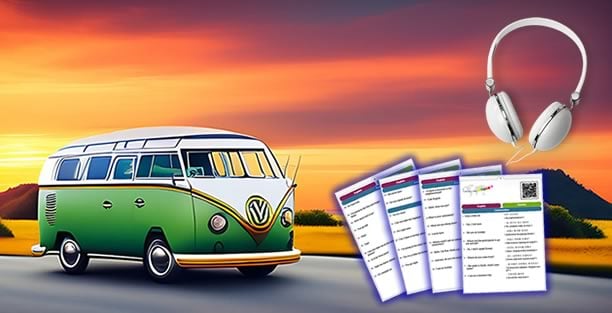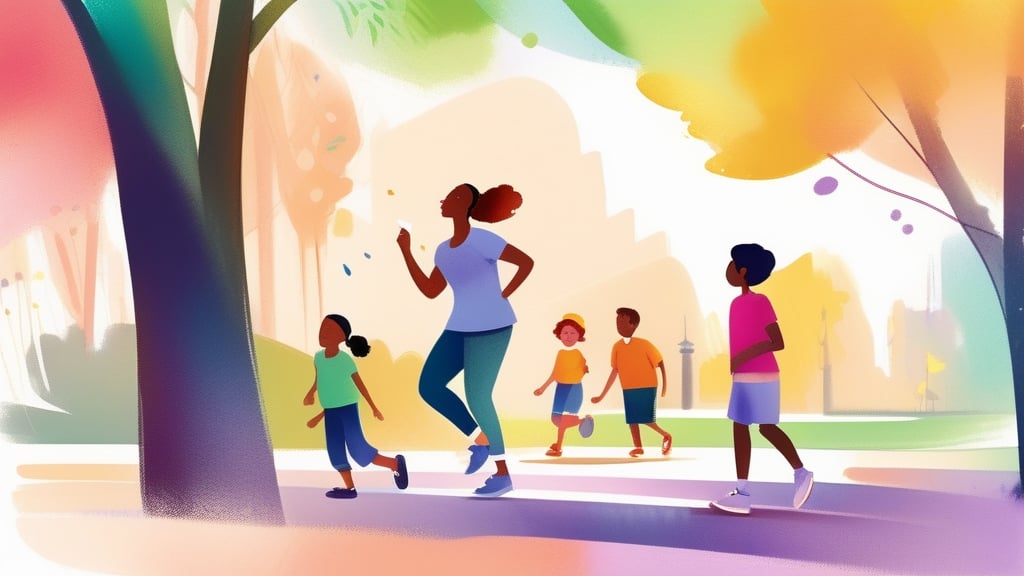Learn English
| English | English | |||
|---|---|---|---|---|
| Hello | Hello | |||
| Hi! | Hi! | |||
| Good evening | Good evening | |||
| Goodbye | Goodbye | |||
| See you later | See you later | |||
| Yes | Yes | |||
| No | No | |||
| Please! | Please! | |||
| Thanks | Thanks | |||
| Thanks a lot | Thanks a lot | |||
| Thank you for your help | Thank you for your help | |||
| Don't mention it | Don't mention it | |||
| Ok | Ok | |||
| How much is it? | How much is it? | |||
| Sorry! | Sorry! | |||
| I don't understand | I don't understand | |||
| I get it | I get it | |||
| I don't know | I don't know | |||
| Forbidden | Forbidden | |||
| Excuse me, where are the toilets? | Excuse me, where are the toilets? | |||
| Happy New Year! | Happy New Year! | |||
| Happy birthday! | Happy birthday! | |||
| Happy holiday! | Happy holiday! | |||
| Congratulations! | Congratulations! |
First contact
“I want to quickly master essential English expressions”
Imagine: in a few minutes, you will pronounce and understand your first English expressions.
The result is IMMEDIATE.
Here's how it works:
- You select the first theme from the library below.
- Once in the player, you click on all the expressions to listen to them and discover their meaning.
Try to memorize them by visualizing them with closed eyes.
Feel free to consult the "Information" sheets (Button "i"). This information will help you memorize them. - You repeat the expressions out loud, using voice recognition (on Chrome only).
- You take the level tests (button with a "Diamond" icon):
- If you answer correctly, the expression will reappear after a certain delay, which increases over time (spaced repetition principle).
- If you answer incorrectly, the expression will reappear a few hours later.
- You visualize your progress by clicking on the "Statistics" icon. This will be complete after about 8 weeks, with a minimum of 20 sessions spaced over this period.
- Icons alert you when a level test is available. You can always practice between these tests, but they will not count towards your progress.
This training is FREE.
However, we offer a LIFETIME package that gives you access to several important advantages in ALL current and future languages of the "First Contact" training. Here are these advantages:
- Unlimited downloads of audio files and printable lists.
- Access to the "Immersion" mode, to listen to expressions in loops, in both languages, without having to look at the screen.
- Training certificates to download.
- Removal of advertisements throughout the site.
Here are 7 tips to help you learn English:
- Establish a Daily Learning Routine
Commit to practicing English every day. Set regular time slots for specific activities like reading, listening, and practicing the language. This point is very important. Be uncompromising and make this routine a priority, or you will always find an excuse to postpone your learning.
- Use Loecsen Extensively
Use our site to practice exercises every day and train yourself to pronounce out loud.
- Watch Series and Movies in English
Watch popular series with English subtitles to improve your listening comprehension and learn common expressions.
- Read in English
Read articles, books, and blogs in English. Start with simple texts and progress to more complex content as you improve.
- Listen to Podcasts and Audiobooks
Listen to English podcasts on topics that interest you. This helps improve your listening comprehension and familiarize yourself with different intonations and accents. You will find everything by searching on YouTube.
Even better: retrieve subtitles and use them on our "Read Aloud" page (it’s completely free). There is no better way to work on pronunciation and free your fear of speaking in a new language. - Learn Through Music
Listen to English songs and try to understand the lyrics. Use applications like LyricsTraining to turn listening to music into a learning exercise.
Again, our "Read Aloud" tool can help you incredibly. You can even take fill-in-the-blank tests with voice recognition on the lyrics of your favorite artists! - Set Specific and Measurable Goals
Set clear and achievable goals, such as being able to hold a simple conversation in three months or reading a book in English in six months. Track your progress regularly.
In each of our training sessions, we give you the goals to achieve as well as the number of days/hours/sessions to follow.
These tips combine immersion methods, technology use, and structured learning to help you learn English effectively and independently.
If you follow them and use Loecsen regularly, there is no reason why your English level won't take off quickly!
How to learn English alone? Start with an easy and free online course!
We have adopted a practical and concrete approach to learning how to speak a language easily and quickly: we suggest you start by memorizing words, phrases, and practical expressions that you can use every day at home to practice and which will then be useful when traveling.
Practicing pronouncing vocabulary out loud, such as numbers, is a good exercise that can be done at any time of the day.
This will get you used to the sounds of the language, making it familiar to listen to, and once your vacation begins in the United Kingdom, the United States, Canada, Australia, New Zealand, or one of the 48 other countries where it is the official language, it will seem very familiar and easy to understand.
Furthermore, using a pocket dictionary will always be useful when traveling to find the translation of unknown words and regularly enrich your vocabulary.
Why speak English while traveling?
To communicate with the whole world
Speaking this language, even if it is just a few words and expressions, ensures that you can communicate with most inhabitants of the world during your vacation abroad. Indeed, it has become the first language of international communication. It is also the most used on the Internet. Unless you are completely cut off from the rest of the world, everyone on Earth knows at least these five very simple words: "yes," "no," "thank you," "hello," "goodbye." That is already enough to establish a first relationship!
A social and professional marker
It should not be ignored that it is a rich and fine language, with each rule accompanied by multiple exceptions, making it much more difficult to master than it seems. You can limit yourself to "Globish" (a term created from "Global" + "English") – a kind of functional Esperanto formed from a simplified language that does not care too much about grammar rules – or go further and discover its infinite subtleties.
Know that if you do not speak this language to a minimum, it will be considered a deficiency that will subtly exclude you from many circles.
Make the most of your stay in an English-speaking country
Whether you are spending a few days with friends for a leisure trip or traveling for a business trip, nothing will be more useful once you are there than being able to slip a few words in the language of your interlocutors, who will appreciate your effort and will be more open and willing to help you.
The second most spoken language in the world
After Chinese (known as standard or Mandarin), English is the second most spoken language in the world. This is what our ranking shows. But in reality, it occupies the first place in the ranking if we take into account its geographical spread worldwide. Indeed, you will find people mastering this language almost everywhere, while Chinese speakers are mainly concentrated in Asia.
How to achieve good pronunciation within a week to a month?
Many rules...and even more exceptions: you'll need to put in some effort
The pronunciation of this language can be quite confusing, not only because many sounds are unique to it but also because you often have to learn numerous exceptions once a rule is learned. For example, the "h" is always "aspirated" at the beginning of a word, except for "Heir" (heir), "Hour" (hour), and "Honour" (honour).
A Dutch poet, Gerald Nolst Trenite, addressed this issue in a famous poem, The Chaos (you can listen to it here: The Chaos > YouTube link).
Additionally, the pronunciation of sentences must follow a certain melody, and each syllable within a word has a particular intonation – known as the tonic accent. To make things more complicated, a rule valid in England may not be followed in the US or Australia.
But don't be discouraged: even though it may take several years of intensive practice to achieve a perfect accent, you can quickly make yourself understood in simple contexts, as your interlocutor will likely make the correction themselves. For example, if you order "a Bear" instead of "a Beer" in a bar, it's unlikely you'll be served a bear to drink! We have put a series of videos online to help you understand all these rules: videos to help you achieve a very good pronunciation.
The English Alphabet
The alphabet is composed of 26 letters, derived from the Latin alphabet.
We invite you to listen to the pronunciation of the letters by clicking on the following link: English alphabet with audio.
What are the best websites to progress quickly?
100% Autonomous Learning - Online Resources
→ BBC Learning English
Level: for people who already have basic knowledge. It requires knowing how to find the right information on your own!
Services: numerous multimedia resources, lively and current. Games and tests.
Our opinion: our favorite site, but it requires time to get used to it. It is a very good complement to our service: once you are familiar with the language, its pronunciation, and its main expressions, you will make rapid progress on the BBC site.
→ British Council - Learn English Central
Level: requires a decent level.
Services: numerous resources categorized by themes and very rooted in current events.
Our opinion: our second favorite site, which, like the BBC's, requires a real desire to get used to it. But once you do, you won't be able to get enough of the numerous and high-quality resources offered. However, we haven't always understood their Flash games... To each their specialty!
Plan of our "Premier Contact" English course
This course lasts approximately 2 to 3 months and will require around 50 hours spread over a hundred sessions.
- Conversation: learn basic greetings in English, daily expressions, and important phrases for any circumstance. If you were to learn only one vocabulary, this is it! From "Hello" to "Thank you" to "Excuse me, where are the toilets?", you will master the survival kit to handle the most common situations during a stay in the United States, England, Australia, or another English-speaking country.
- Learning: assimilate the vocabulary and practical phrases to learn how to learn in a new language and get help from locals. Whether you are in England or Canada, asking for help will be much easier with these practical phrases.
- Colors: learn the names of the main colors. This may not seem like the most useful vocabulary at first glance, but in reality, these words are among the first learned by children, and for good reason. Naming colors strongly structures our perception of the world, and knowing how to pronounce them in a new language will be your first sign of truly belonging to the Anglo-Saxon world you seek to join through language. Imagine describing the magnificent colorful landscapes of New Zealand or Australia with ease.
- Numbers: knowing them is essential for daily transactions and understanding elements such as dates and prices. Whether paying for a coffee in London or understanding an address in New York, knowing numbers is indispensable.
- Time References: learn phrases to tell the time and discuss dates. This will be particularly useful if you need to make an appointment in Canada or plan an excursion in South Africa.
- Taxi: all the vocabulary for hailing and taking a taxi. And also indicating the way or asking the driver to slow down. These phrases will be useful for navigating cities like Sydney or London.
- Family: the section of terms for family members and discussing family. Talking about your family with locals in the United States or New Zealand can create deeper connections.
- Feelings: list of expressions to describe emotions. Appropriately expressing your feelings will be very useful in social interactions, whether in England or Canada.
- Bar: learn to order drinks in a bar in England, the USA, Australia, Canada, South Africa, or New Zealand, etc. This is the favorite theme of many of our learners! Imagine confidently ordering a local beer at a pub in London or Sydney.
- Restaurant: find here all the vocabulary that will allow you to act like the locals in a restaurant. Whether you are in a starred restaurant in New York or a cozy café in Melbourne, you will be comfortable placing your order.
- Leaving: learn the vocabulary to say goodbye and leave a good impression. Saying goodbye politely to friends met in South Africa or the United Kingdom will always leave a good impression.
- Transport: this theme is essential if you intend to travel by bus or train. Whether taking the subway in London or the train in California, this vocabulary will be very useful.
- Hotel: in most countries around the world, you will have interlocutors who speak English at the reception. So unless you are staying with friends, in a rental, or in a tent, this is basic vocabulary that everyone should know. Not all expressions in this theme are necessarily useful in all countries. You can filter them yourself based on your destination. Check your reservations or ask for local recommendations, whether in South Africa or New Zealand.
- Looking for someone: you will find here the words and phrases to find someone and, if the person is not there, how to reach them. Very useful if you need to find a friend in a big city like London or Toronto.
- Beach: this may not be the most important theme of this course, unless you are a child! However, it should not be overlooked, as it is also a matter of safety. Indeed, knowing how to ask for information about the dangers of an environment can save you from big problems. Think of the beaches in Australia where knowing safety instructions can be vital.
- In case of trouble: don't take this theme lightly, as it could save your life! Whether you are hiking in New Zealand or in the city in the United States, these phrases could be crucial in case of an emergency.
Who did the translations and recordings for this site?
The translations were done by our company. The audio recordings were made with Antony Hickling for the male voice, and with Bibi Jacob for the female voice.
Are you ready to speak English?
You just need to click on the first theme below!






Loecsen: the certificate is edited with the first and last name of the logged-in user. You can change this information by going to the login/user menu at the top. We're also delighted that you like our language method! Thank you for your interest!
simple, and easy to use and I found all the language skills required for me.
but I will wonder if you add more levels of learning.
I recommend everyone with this platform to improve his language abilities with professional support and creativity.
this is my real witness.
Loecsen: thank you for your comment! This year we will be adding dozens of quality courses in most languages.